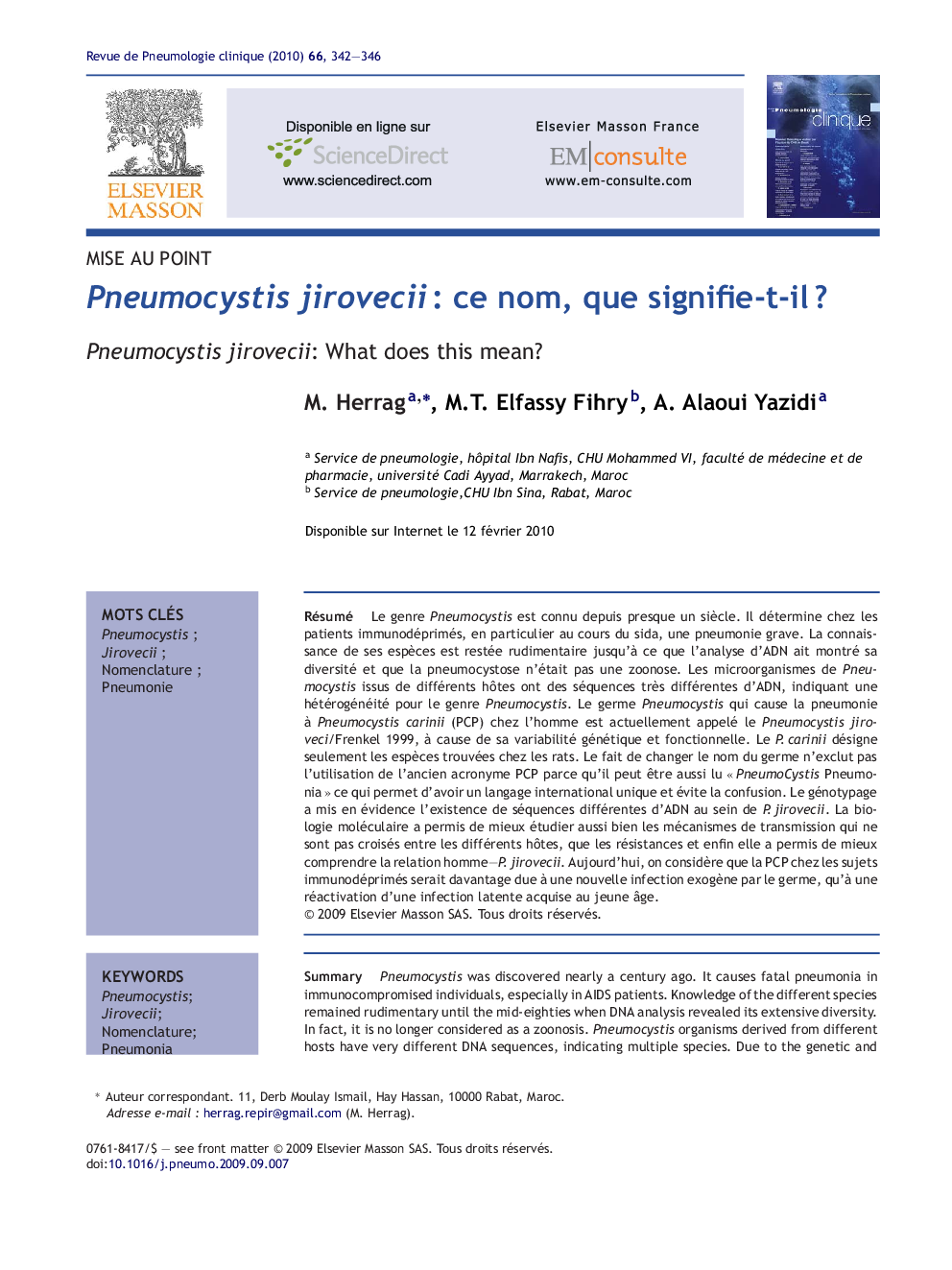| Article ID | Journal | Published Year | Pages | File Type |
|---|---|---|---|---|
| 3419917 | Revue de Pneumologie Clinique | 2010 | 5 Pages |
Abstract
Pneumocystis was discovered nearly a century ago. It causes fatal pneumonia in immunocompromised individuals, especially in AIDS patients. Knowledge of the different species remained rudimentary until the mid-eighties when DNA analysis revealed its extensive diversity. In fact, it is no longer considered as a zoonosis. Pneumocystis organisms derived from different hosts have very different DNA sequences, indicating multiple species. Due to the genetic and functional disparities, the organism that causes human PCP is now named Pneumocystis jirovecii/Frenkel, 1999. We continue to call Pneumocystis carinii the species found in rats. This will allow for a single international language and avoid confusion. Changing the organism's name does not preclude the use of the well-known acronym PCP because it can also be read “PneumoCystis Pneumonia.” The DNA sequences and genotypage have shown that variations exist among samples of P. jiroveci. Molecular biology is helpful in the study of the mechanisms of transmission, which can only occur in the same host and the different resistances as well as providing a better understanding of the relationship between host and pathogen. P. jirovecii pneumonia in immunosuppressed patients was previously thought to result from the reactivation of a latent infection acquired in early childhood. However, today, it is believed to result from a new infection from an exogenous source.
Related Topics
Health Sciences
Medicine and Dentistry
Infectious Diseases
Authors
M. Herrag, M.T. Elfassy Fihry, A. Alaoui Yazidi,
